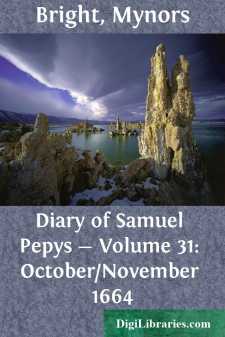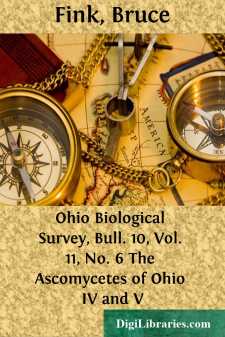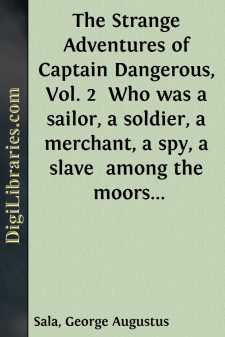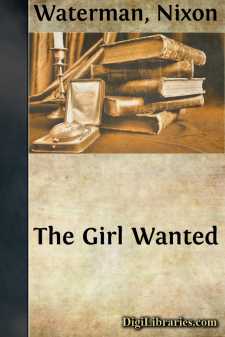Categories
- Antiques & Collectibles 13
- Architecture 36
- Art 48
- Bibles 22
- Biography & Autobiography 813
- Body, Mind & Spirit 142
- Business & Economics 28
- Children's Books 13
- Children's Fiction 10
- Computers 4
- Cooking 94
- Crafts & Hobbies 4
- Drama 346
- Education 46
- Family & Relationships 57
- Fiction 11828
- Games 19
- Gardening 17
- Health & Fitness 34
- History 1377
- House & Home 1
- Humor 147
- Juvenile Fiction 1873
- Juvenile Nonfiction 202
- Language Arts & Disciplines 88
- Law 16
- Literary Collections 686
- Literary Criticism 179
- Mathematics 13
- Medical 41
- Music 40
- Nature 179
- Non-Classifiable 1768
- Performing Arts 7
- Periodicals 1453
- Philosophy 64
- Photography 2
- Poetry 896
- Political Science 203
- Psychology 42
- Reference 154
- Religion 513
- Science 126
- Self-Help 84
- Social Science 81
- Sports & Recreation 34
- Study Aids 3
- Technology & Engineering 59
- Transportation 23
- Travel 463
- True Crime 29
Sort by:
by:
Mynors Bright
DIARY OF SAMUEL PEPYS. OCTOBER & NOVEMBER 1664 October 1st. Up and at the office both forenoon and afternoon very busy, and with great pleasure in being so. This morning Mrs. Lane (now Martin) like a foolish woman, came to the...
more...
by:
Oliver Optic
IN WHICH PHIL COMES HOME WITH PLENTY OF FISH. "Hollo, Phil!" That was the name to which I answered, especially when it was spoken as decidedly as on the present occasion. "I'm coming," I replied, at the top of my lungs. I had been a-fishing in a stream which flowed into the Missouri about a mile above my home. I had been very successful, and had as many fish as I could carry. I was...
more...
by:
Bruce Fink
LECIDEACEAE Thallus crustose, without plectenchymatous cortex (, a), varying from granulose and often evanescent to conspicuous, areolate, or even subsquamulose conditions, attached to the substratum by hyphal rhizoids (, d), and in a few instances extending up as a veil and surrounding the apothecia laterally, the hyphae densely interwoven toward the upper surface, but more loosely disposed below (, a...
more...
by:
Clyde Fitch
ACT I A charming room in the Tillmans' house. The walls are white woodwork, framing in old tapestries of deep foliage design, with here and there a flaming flamingo; white furniture with old, green brocade cushions. The room is in the purest Louis XVI. The noon sunlight streams through a window on the left. On the opposite side is a door to the hall. At back double doors open into a corridor which...
more...
Opportunity From where Dick Barrow sat, hundreds of men were visible, occupying benches in every manner of position. Some stretched at full length, sleeping in the morning sun after a night in the park. Others sat with heads hanging; thinking thoughts of their own. Depression or recession, it meant the same to all of them. Some didn't care, but others tried to find any kind of work that would fill...
more...
by:
Lyndon Orr
THE STORY OF ANTONY AND CLEOPATRA Of all love stories that are known to human history, the love story of Antony and Cleopatra has been for nineteen centuries the most remarkable. It has tasked the resources of the plastic and the graphic arts. It has been made the theme of poets and of prose narrators. It has appeared and reappeared in a thousand forms, and it appeals as much to the imagination to-day...
more...
CHAPTER THE FIRST. OF SUNDRY MY ADVENTURES FROM THE TIME OF MY GOING ABROAD UNTIL MY COMING TO MAN'S ESTATE (WHICH WAS ALL THE ESTATE I HAD).A StrangeNursing-mother—rather a Stepmother of the Stoniest sort—was this Sir Basil Hopwood, Knight and Alderman of London, that contracted with the Government to take us Transports abroad. Sure there never was a man, on this side the land of...
more...
by:
Henry Morley
INTRODUCTION. “A ray has pierced me from the highest heaven—I have believed in worth; and do believe.” So runs Mr. Woolner’s song, as it proceeds to show the issue of a noble earthly love, one with the heavenly. Its issue is the life of high endeavour, wherein “They who would be something moreThan they who feast, and laugh and die, will hearThe voice of Duty, as the note of...
more...
by:
Louis Becke
CHAPTER I. INTRODUCTORY—THE EARLIEST AUSTRALIAN VOYAGERS: THE PORTUGUESE, SPANISH, AND DUTCH. Learned geographers have gone back to very remote times, even to the Middle Ages, and, by the aid of old maps, have set up ingenious theories showing that the Australian continent was then known to explorers. Some evidence has been adduced of a French voyage in which the continent was discovered in the youth...
more...
by:
Nixon Waterman
CHAPTER ICHOOSING THE WAY What can be expressed in words can be expressed in life.—Thoreau.Yes, my good girl, I am very glad that we are to have the opportunity to enjoy a friendly chat through the medium of the printed page, with its many tongues of type. It is faith in something and enthusiasm for something that makes a life worth looking at.—Oliver Wendell Holmes. Just here I have a favor to ask...
more...











